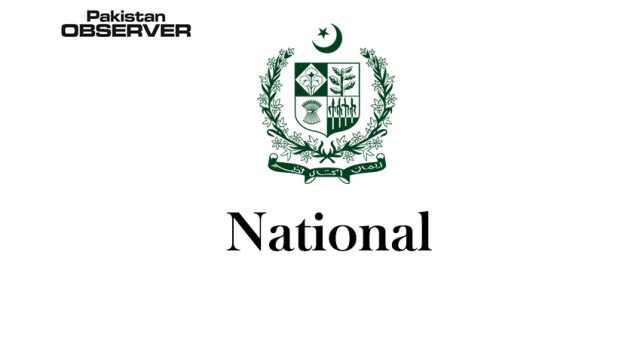After failure of independence war of 1857, the Muslims of subcontinent, who ruled over united India for nearly 800 years, were pushed to the wall by the colonial masters as they considered them rivals after snatching of power from Mughal emperors under the guise of East India company.
Faced with an unending ordeal of disparity, discrimination and inequality, the Muslims were subjected to an intellectual, political and educational decay as the colonial rulers strengthened grip on the subcontinent and tilted towards socio-economic and educational empowerment of hindus. During that grim era, the Muslims were given a new hope and direction by the renowned educationist, political thinker and social reformer, Sir Syed Ahmed Khan. Sir Syed instilled a new vigor and dynamism among Muslims following inspirational teachings of the great religious leaders, Mojadad Alf Sani and Shah Waliullah.
“Brought about an intellectual revolution among Muslims through educational, political and social reforms, the foundation of Pakistan laid by Sir Syed was completed by the legendary Quaid-e-Azam Muhammad Ali Jinnah on August 14, 1947,” said Muhammad Yousaf Khan, Chairman, Pakistan Studies Department, Islamia College Peshawar while talking to APP. “Sir Syed on one side had nullified the malicious propaganda of the colonial rulers, hindus and pessimist forces during an era of discrimination, oppression and darkness, and had brought Muslims of British India out of ominous and oppression on the other side.”
The great leader, while taking cognizance of socioeconomic, political and educational decay of an oppressed Muslims, had founded All India Muhammadan Educational Conference (AIMEC) Aligarh in 1886, which carried forward Sir Syed’s vision regarding modern education, socio-economic empowerment and political unity of Muslims to regain the past glory.
The network of educational institutions and political unity organized under AIMEC had enabled millions of Muslims to compete with other communities including Hindus and provided a launching pad for Muslims to initiate a peaceful political and democratic struggle for a separate homeland in the subcontinent. “Sir Syed’s multi reforms had excelled Muslims in education, social, economic and political sciences, resultantly their voices were heard strongly by the British rulers,” he maintained.
Under the flag of All India Muslim League (AIML) founded on December 30, 1906 at Dhaka, the Muslims got united by giving new impetus to independence movement. The independence movement had witnessed further momentum after Quaid-e- Azam Muhammad Ali Jinnah had spearheaded it after formally joining AIML in 1913 and outlining of an independent state for Muslims majority provinces in the North Western India by the great poet philosopher Dr. Allama Muhammad Iqbal during historic Allahabad address in 1930.
Dr. Allama Iqbal became the first politician to articulate about the two nation-theory that Muslims were a distinct nation and deserved political independence from other regions and communities of the united India. Yousaf said, “Pakistan movement had passed through different phases and finally achieved its practical shape in 1933 during a high-level gathering in London where Chaudhary Rehmat Ali presented the name of Pakistan.”
Recalling Rehmat Ali’s famous saying ‘now or never or perish forever,’ Yousaf said the two former students, Aslam Khattak and Inayatullah Khan of Charsadda along with other Muslims leaders endorsed the name of Pakistan.
“Pakistan’s name and Allahabad’s historic address had set a clear direction to the Muslims to achieve Pakistan.”
The Muslims of united India under leadership of Quaid e Azam were later gathered at Iqbal park in Lahore on March 23, 1940 where they passed the historic Pakistan’s Resolution. Following adoption of the Pakistan Resolution, Quaid-e-Azam reorganized AIML on modern lines and made repeated visits to all Muslims majority provinces including KP (earlier called NWFP) to mobilize masses for creation of Pakistan.










